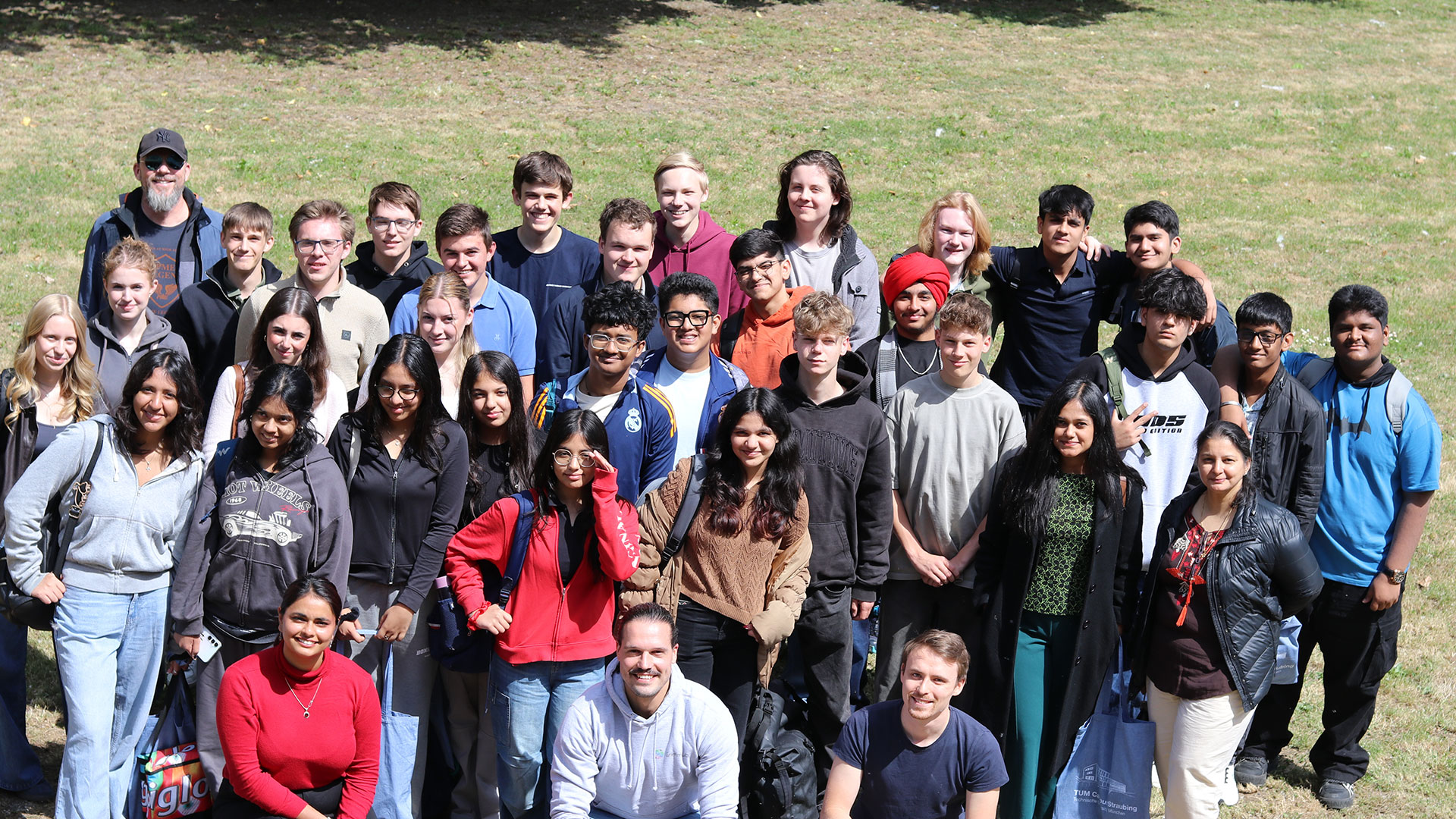The event focused on a practical introduction to current AI methods and their application in biochemical and agricultural research. PhD students Ashima Khanna, Josef Eiglsperger and Nikita Genze from Prof. Grimm's Professorship of Bioinformatics gave the young people an exclusive insight into their latest projects and developments. They explained how artificial intelligence is used in the development of new proteins and enzymes as well as in the prediction of 3D structures of proteins and how this technology is changing biology and chemistry today.
It was also explained how AI is revolutionizing agriculture. The presentation of the “LiveSenMAP” project aroused particular interest. With the help of AI and innovative biosensor test strips, the nitrate content of crops can be measured directly on site - quickly, precisely and in real time. This enables more targeted use of fertilizers, which increases yields and protects the environment. The students also learned how drones, various camera systems and AI algorithms are combined to monitor the health of plants, detect pests at an early stage and make agricultural processes more efficient.
The students were impressed, asked numerous questions and took an active part in discussions about the opportunities, risks and ethical issues surrounding the use of AI. With their curiosity and growing interest in scientific topics, they also inspired the researchers involved.
Finally, the young guests were given practical tips on choosing a course of study and career. Which subjects lead towards AI and bioinformatics? Which projects offer initial career opportunities? The answers to these questions should help them to find their own path into research at an early stage.
“We hope that we were not only able to impart knowledge with this visit, but also arouse genuine enthusiasm,” summarized the doctoral students. “We may even have inspired some of tomorrow's scientists today.”
It was a successful exchange that showed how important it is to make young people aware of the challenges and potential of modern technologies at an early age and to encourage them to actively shape the future.
